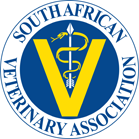Original Research
The role of the state in stock farming in rural areas: A case study of Hertzog, Eastern Cape, South Africa
Submitted: 30 July 2012 | Published: 19 August 2014
About the author(s)
Vimbai R. Jenjezwa, Department of Geography and Environmental Science, University of Fort Hare, South AfricaCecil E.P. Seethal, Department of Geography and Environmental Science, University of Fort Hare, South Africa
Abstract
This study examined the role of the state in providing veterinary services to resource-poor stock farmers. Communal stock farmers in most rural areas have low incomes and generally poor access to commercial veterinary healthcare. The state veterinary services thus offer a means for stock farmers to maintain the health of their livestock and receive information on animal healthcare. Interviews and participant observation were used to collect data about animal healthcare practices in Hertzog, a village in the Eastern Cape Province of South Africa.The findings were that the state played an important role in animal healthcare and in the education of farmers. However, the lack of a skilled workforce was a constraint to effective service delivery, whilst veterinary educational institutions that disseminate information to the stock farmers were not utilised. It is thus important to fully utilise training centres to educate stock farmers and for more incentives to be given to state employees, so as to attract the necessary skilled personnel to improve service delivery.
Keywords
Metrics
Total abstract views: 2568Total article views: 10151
Crossref Citations
1. Farmers’ preference and willingness to pay for a multivalent lumpy skin disease and Rift Valley fever novel vaccine: A discrete choice experiment in the Free State province, South Africa
Mampe Masemola, Enoch Owusu-Sekyere, Abiodun A. Ogundeji, Hermias N. van Niekerk, Petronella Chaminuka
Preventive Veterinary Medicine vol: 189 first page: 105293 year: 2021
doi: 10.1016/j.prevetmed.2021.105293
